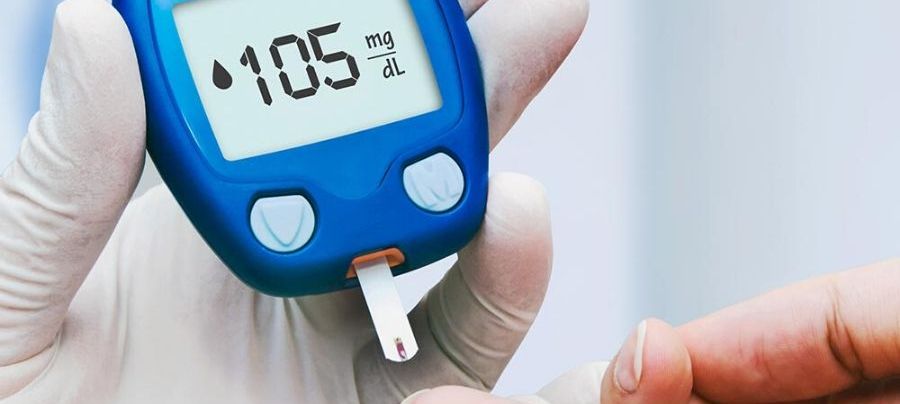Sunshine may be one of the richest sources of vitamin D, but there’re many more. And this essential vitamin is not just only good for your bones, but it also improves your mood, boosts immunity and helps you to lose weight.
Vitamin D is one of the most important vitamins for the human body, and one of its best sources is sunshine. All you just need to do is to spend thirty minutes outdoors, soaking in the sunshine.
WHAT IS VITAMIN D?
Despite the name, this vitamin is considered a pro-hormone and not actually a vitamin. Vitamins are nutrients that can’t be created within the body and therefore must be consumed through our diet.
However, this necessary vitamin can be synthesized by our body when sunlight hits our skin.

It’s estimated that sensible sun exposure on bare skin for approx 5 to 10 minutes 2-3 times/week allows most individuals to sufficiently produce vitamin D, but this vitamin breaks down quite quickly, meaning that stores can run low, especially in the winter season.
WHAT ARE THE BENEFITS OF VITAMIN D?
The health advantages of vitamin D may include:
1. For Healthy Bones:
Vitamin D plays a vital role in the regulation of calcium and the maintenance of phosphorus levels in the blood.
These are the two factors that are extremely important for maintaining strong and healthy bones. We require this vitamin to absorb calcium in the intestines and to reclaim calcium that would otherwise be excreted through the kidneys.
Vitamin D deficiency can cause rickets in children, a disease characterized by a severely bow-legged appearance due to softening of the bones.
In adults, vitamin D deficiency manifests as osteoporosis or osteomalacia. Osteomalacia results in muscular weakness and poor bone density. Osteoporosis is the most common bone disease among the post-menopausal women and older men.
2. For Cancer Prevention:
Vitamin D has been widely known and marketed for their claimed anti-cancer properties. It’s not clear, however, if consuming additional vitamin D in the diet or as supplement affects the risk of cancer.
One 2014 study states that the supplements had no significant effect on the risk of cancer. 2014 study concluded that vitamin D3 may decrease the risk of death from cancer, but concerns with the quality of the data were noted.
Insufficient evidence exists to recommend vitamin D supplements for individuals with cancer.
3. For Diabetes:

A systematic review of 2014 concluded that available studies present no evidence of vitamin D3 supplementation having an effect on glucose homeostasis or diabetes prevention.
A review article of year 2016 reported that while there’s increasing evidence that vitamin D deficiency may be a risk factor for diabetes, over-all evidence regarding vitamin D levels and diabetes mellitus is contradictory, requiring further studies.
4. For Depression:
Clinical trials of vitamin D supplementation for depressive symptoms have generally been of low quality and show no overall effect, although subgroup analysis showed supplementation for participants with clinically significant depressive symptoms or depressive disorder had a moderate effect.
5. For Cognition and Dementia:
A systematic review of clinical studies found an association between low vitamin D levels with cognitive impairment and a higher risk of developing Alzheimer’s disease.
However, lower vitamin D concentrations are also associated with poor nutrition and spending less time outdoors.
Therefore, alternative explanations for the increase in cognitive impairment exist and hence a direct causal relationship between vitamin D levels and cognition could not be established.
6. For Pregnancy:
Low levels of vitamin D in pregnancy are associated with gestational diabetes, pre-eclampsia, and small (for gestational age) infants.
Although consuming the supplements of vitamin D during pregnancy raises blood levels of vitamin D in the mother at term, the extent of benefits for the mother or baby is unclear.

Pregnant women who take an adequate amount of vitamin D during gestation may experience a lower risk of pre-eclampsia and positive immune effects.
A 2018 review found that supplements may reduce the risk of undersized babies and of their poor rate of growth. Pregnant women often do not take the recommended amount of it.
7. For Weight Loss:
Though it’s believed that vitamin D supplementation may be an effective treatment for obesity apart from calorie restriction, one systematic review found no association of supplementation with body weight or fat mass.
A 2016 meta-analysis found that circulating vitamin D status was improved by weight loss, indicating that fat mass may be inversely associated with blood levels of it.
HOW MUCH VITAMIN D SHOULD I TAKE?

The table shows of recommended intake of vitamin D according to age:
| United States | ||
| Age group | RDA (IU/day) | (μg/day) |
| Infants 0–6 months | 400 | 10 |
| Infants 6–12 months | 400 | 10 |
| 1–70 years | 600 | 15 |
| 71+ years | 800 | 20 |
| Pregnant/Lactating | 600 | 15 |
| Age group | Tolerable upper intake level (IU/day) | (µg/day) |
| Infants 0–6 months | 1,000 | 25 |
| Infants 6–12 months | 1,500 | 37.5 |
| 1–3 years | 2,500 | 62.5 |
| 4–8 years | 3,000 | 75 |
| 9+ years | 4,000 | 100 |
| Pregnant/lactating | 4,000 | 100 |
| Canada | ||
| Age group | RDA (IU) | Tolerable upper intake (IU) |
| Infants 0–6 months | 400 | 1,000 |
| Infants 7–12 months | 400 | 1,500 |
| Children 1–3 years | 600 | 2,500 |
| Children 4–8 years | 600 | 3,000 |
| Children and Adults 9–70 years | 600 | 4,000 |
| Adults > 70 years | 800 | 4,000 |
| Pregnancy & Lactation | 600 | 4,000 |
| Australia and New Zealand | ||
| Age group | Adequate Intake (μg) | Upper Level of Intake (μg) |
| Infants 0–12 months | 5 | 25 |
| Children 1–18 years | 5 | 80 |
| Adults 19–50 years | 5 | 80 |
| Adults 51–70 years | 10 | 80 |
| Adults > 70 years | 15 | 80 |
| European Food Safety Authority | ||
| Age group | Adequate Intake (μg) | Tolerable upper limit (μg) |
| Infants 0–12 months | 10 | 25 |
| Children 1–10 years | 15 | 50 |
| Children 11–17 years | 15 | 100 |
| Adults | 15 | 100 |
| Pregnancy & Lactation | 15 | 100 |
| Adequate intake, no RDA/RDI yet established |
WHAT FOODS ARE HIGHEST IN VITAMIN D?

Sunlight is the most common and best source of vitamin D. If if you’re not getting enough quantity of this vitamin, you can also find it from many vegetable and non-vegetable sources.
The richest food sources of vitamin D are fatty fish and fish oil. Here is a list of foods with good levels:
- Fortified skim milk, 1 cup: 120 IU
- Egg, chicken, whole large: 44 IU
- Raw maitake mushrooms, 1 cup: 786 IU
- Cod liver oil, 1 tablespoon: 1,360 IU
- Herring, fresh, raw, 4 ounces: 1,056 IU
- Swordfish, cooked, 4 ounces: 941 IU
- Salmon, sockeye, cooked, 4 ounces: 596 IU
- Sardines, canned, 4 ounces: 336 IU
- Tuna, canned in water, drained, 3 ounces: 68 IU
WHAT ARE THE SYMPTOMS OF VITAMIN D DEFICIENCY?
Vitamin D deficient people may show following symptoms:
- Fatigue
- Depressed mood
- Hair loss
- Muscle pain
- Getting sick or infected more often
- Painful bones and back
- Impaired wound healing
If vitamin D deficiency continues for a long period of time, it can result in:
- Depression
- Obesity
- Osteoporosis
- Diabetes
- Fibromyalgia
- Hypertension or high blood pressure
- Chronic Fatigue syndrome
- Neurodegenerative diseases, such as Alzheimer’s disease
Deficiency of vitamin D may also contribute to the development of certain cancers, especially breast, colon and prostate cancers.
